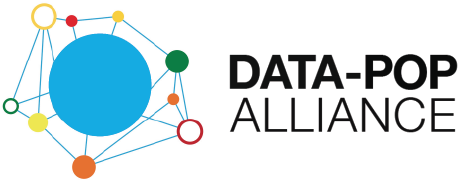MAURITANIA
Information last updated: 13 April, 2020
- Total population: 4.2 M
- Population +65 yo: 3%
- GDP Per Capita: 3,803 USD
- Informal employment: NA
- First registered case: 13 March
- Hospital beds: NA
Sources: TheWorld Bank and WHO (Population over 65 years old, Informal employment, GDP-PPP, Hospital beds).
Status
- National curfew from 6:00 pm to 6:00 am
- Road traffic and transportation between regions is prohibited
Response set up and capacity
The Ministry of Health is in charge of coordinating a response to the crisis with support from the Ministry of the Interior.
Stakeholder Mapping
Entities / Organizations
• The President
• The Prime Minister
• The Ministry of health
• The Ministry of Interior
• The Ministry of Transportation
• The Ministry of Commerce
Additional actors
• World Health Organization
• International Organization for Migration (IOM)
• European Union
• World Vision
• UNICEF
Mitigating factors - What is being done?
- All schools and universities are closed through April 30th.
- March 15 – The government suspends all international and local flights and bans mass gatherings. Universities and schools are closed through April 30th.
- March 18 – President Ghazouani addresses the nation in a televised speech announcing that the situation is under control and that the government will take further measures to prevent the spread of Coronavirus.
- March 19 – The Ministry of the Interior orders all restaurants and cafes closed, and bans all public gatherings until further notice.
- March 21 – The government imposes a curfew from 6:00 pm to 6:00 am, shortening the previous curfew by two hours.
- March 22 – The Mauritanian government announces that new working hours for its government employees will be from 8:00 am to 4:00 pm until further notice. The Mauritanian Ministry of Islamic Affairs issued a fatwa asking Mauritanians to pray “Maghrib” 7:30 pm and “Isha” 20:40 pm at home, in order to comply with the curfew. Meanwhile, the National Federation of Imams issued a fatwa authorizing Mauritanians to be absent from Friday prayers. Additionally, the government closes all land and sea borders, and air space; commercial merchandise and other goods are still allowed to cross Mauritanian borders. Travelering entering Mauritania have been quarantined in local hotels.
- March 27 – The government announces that the number of government workers (with the exception of the military, security, health and production workers) at their respective places of work should be limited until further notice. This move is not expected to impact the salary or benefits of the government workers in question.
- March 28 – The Government announces that as of Sunday, March 29 at 12:00 noon, all road traffic and movement of persons between the wilayas (regions) is prohibited, except for health workers, service delivery missions (e.g., water, electricity, telecommunications) and the transportation of goods. In addition to this, restrictions are also imposed on land transport, in particular limiting the number of passengers.
- March 29 – The Government closes all public markets except for food markets.
- April 19 – All Covid-19 cases in Mauritania are declared to have recovered
Risks, vulnerabilities, obstacles
COVID-19 presents a great risk for Mauritania, exacerbated by its poverty conditions. Though the measures taken by the government will contribute to reducing the effect of the pandemic, most citizens live solely from local commerce. These restrictions will impact individuals purchasing power, and may lead to declining purchasing power (with important effects on individual’s nutrition, and vulnerability to abuse, amongst others). Education is also likely to be affected given the difficulty to set up or leverage current infrastructure to manage distance learning.
Key resources
Contributor(s): Mamadou Tourad DIALLO


